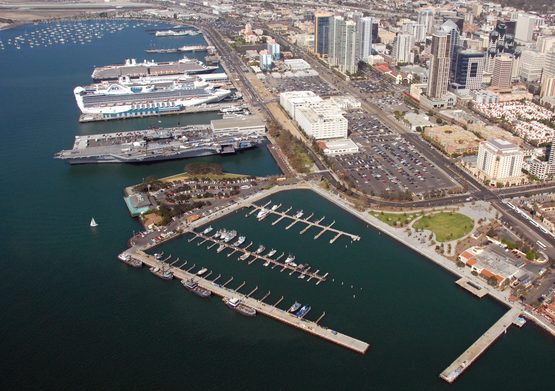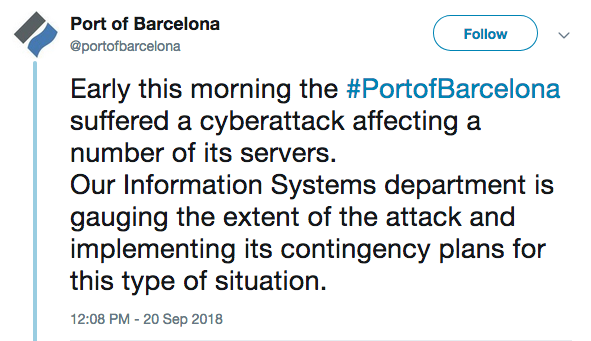
Port of San Diego Hit by Ransomware
28.9.2018 securityweek Ransomware
The Federal Bureau of Investigation (FBI) and the Department of Homeland Security (DHS) were called in by the Port of San Diego in California after some of the organization’s IT systems became infected with a piece of ransomware.
The Port of San Diego issued its first statement on the cybersecurity incident, which it described as “serious,” on September 26, one day after it started receiving reports of disruption to IT systems.

In a follow-up statement released on September 27, the port clarified that some systems were compromised as a result of the attack and others were shut down as a precautionary measure. However, the organization pointed out that it was mainly an administrative issue that did not impact normal port operations.Port of San Diego hit by ransomware
“The Port remains open, public safety operations are ongoing, and ships and boats continue to access the Bay without impacts from the cybersecurity incident,” the port’s CEO Randa Coniglio stated. “The temporary impacts on service to the public are in the areas of park permits, public records requests, and business services.”
The Port of San Diego said it had received a ransom note that requested payment in bitcoin, but the amount was not disclosed and no other details have been provided.
“We will certainly see more incidents like this impacting entire organizations or even cities,” Ilia Kolochenko, CEO of web security firm High-Tech Bridge, said via email. “Lack of continuous monitoring and patch management is a widespread cause for vulnerable systems that can be easily hacked with a public exploit. Moreover, the situation is seriously exacerbated by industrial systems, some of which are still running Windows XP but are connected to production networks and the Internet. Some of these systems are so critical for business that nobody dares touch them. All this inevitably creates an explosive cocktail that may paralyze organizations and cities for weeks.”
The Port of Barcelona also reported being hit by a cyberattack this month, but it’s unclear if the incidents are related. The Spanish port has not shared any information about the type of attack, but also claimed that the incident only affected internal systems, with no impact on land or seaside operations.
The Port of Barcelona says it has “initiated the appropriate legal actions in retaliation to this serious attack.”

Experts have often warned about the cyber threats faced by the maritime industry and the vulnerabilities that expose organizations to attacks. However, while some scenarios are only theoretical, threat actors have been known to target shipping companies, including with ransomware.
Chinese shipping and logistics giant COSCO reported in July that a piece of ransomware had disrupted some of its systems in the United States.
Danish shipping giant A.P. Moller–Maersk was one of the many high profile victims of last year’s NotPetya campaign, which caused losses of hundreds of millions of dollars for several major companies. On the surface NotPetya behaved like a piece of ransomware, but it later turned out to be a wiper designed to cause significant damage.